16 Common SEO Mistakes Brands Still Make in 2026
May 22, 2025
Written by Casey Bjorkdahl

Casey Bjorkdahl is one of the pioneering thought leaders in the SEO community. In 2010, Casey co-founded Vazoola after working for a Digital Marketing Agency for five years in New York City. Vazoola is now one of the fastest growing and most widely recognized SEO marketing firms in the country.
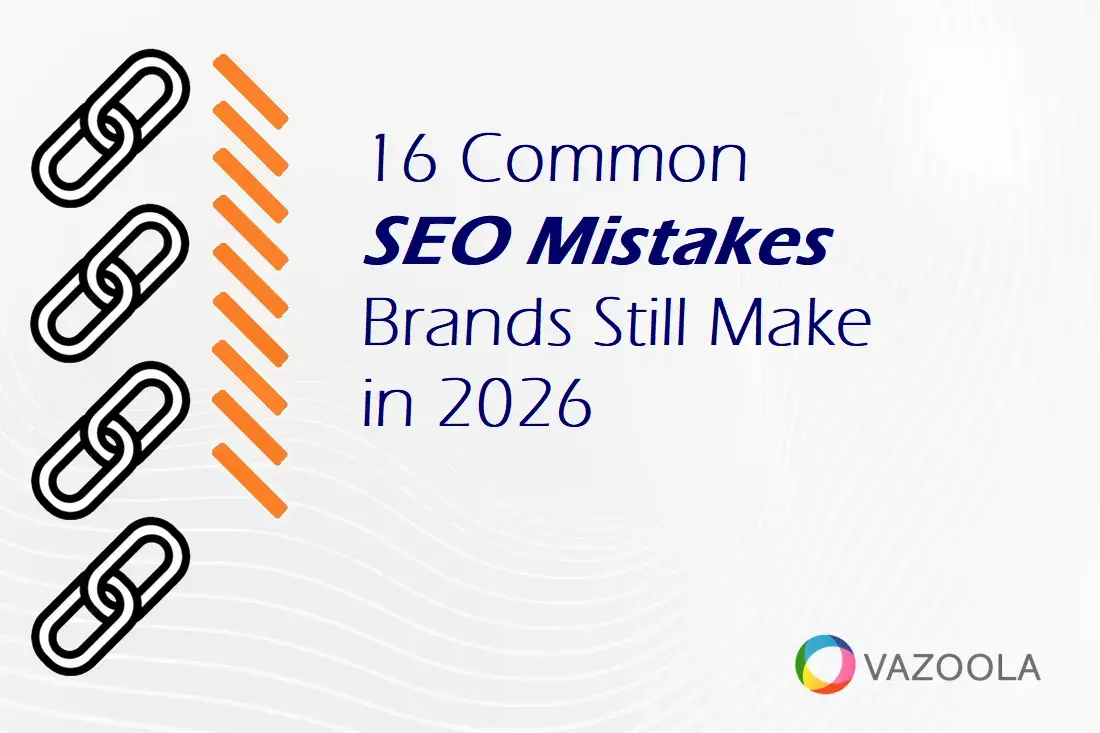
Search engines reward clarity, quality, and consistency. Yet many businesses still miss the mark.
Even well-intentioned SEO strategies can backfire when they’re built on outdated practices or overlooked details. From broken links to poor keyword usage, the smallest missteps can completely tank your visibility.
To help you refine your SEO strategy, we’re breaking down the 16 most common SEO mistakes we still see in 2025 — and we’ll show how to fix them for better rankings, stronger engagement, and lasting results.
Key Takeaways About Top SEO Mistakes
-
Avoiding common e-commerce SEO mistakes can significantly improve your site's organic traffic and search engine rankings.
-
Regularly updating your SEO strategy ensures alignment with current best practices and algorithm changes.
-
Focusing on user experience and high-quality content is essential for SEO success.
Table of Contents
Why Avoiding SEO Mistakes is Important for Your Business
SEO is a dynamic field, with search engines frequently updating their algorithms. That’s one reason why it’s so easy for companies to make on-page SEO mistakes.
When search engines like Google make significant changes – or even lesser modifications to their algorithms – businesses and agencies can be left behind.
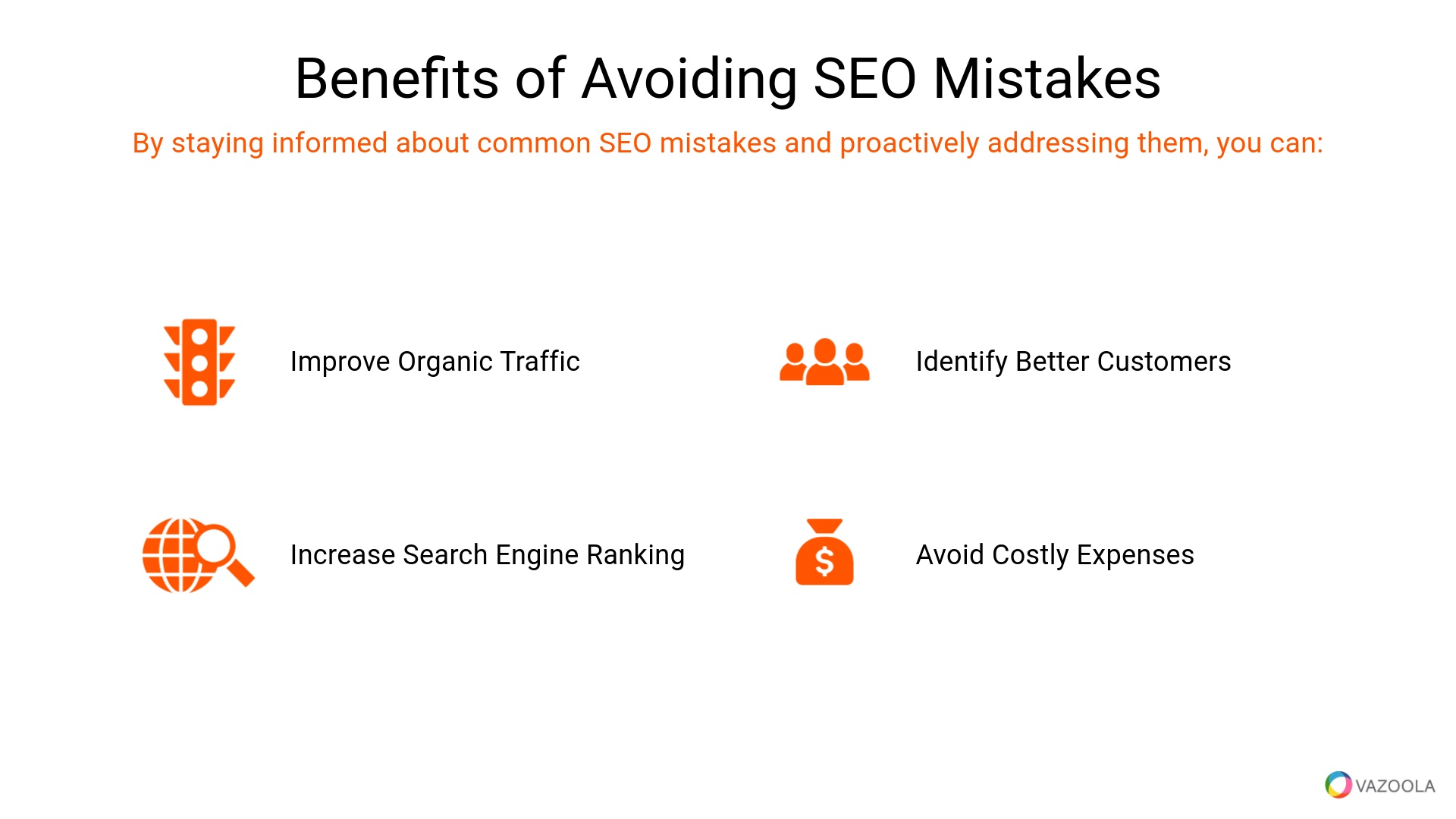
The good news is that by staying informed about common mistakes and proactively addressing them, you can:
-
Improve Your Site's Organic Traffic: By steering clear of common SEO errors, your website becomes more accessible to users, leading to increased organic traffic and better marketing outcomes.
-
Increase Search Engine Rankings: The primary objective of SEO is to secure a prominent position on search engine results pages – or in other words to boost your search engine rankings. Avoiding fundamental mistakes ensures your SEO efforts are effective and your site remains competitive.
-
Identify Better Customers: Some SEO missteps can result in targeting a broad audience that doesn't align with your ideal customer profile. Refining your SEO strategy helps attract and engage the right audience.
-
Avoid Costly Expenses: Addressing enterprise SEO mistakes early prevents the need for extensive corrections later, saving your business time and resources. After all, time is money!
SEO Not Working? 16 Common Causes
Many SEO campaigns fall short not because of a lack of effort, but because of simple, preventable mistakes. These errors often go unnoticed until rankings drop or traffic stalls.
Understanding the root causes of poor SEO performance can help you take immediate action.
Technical SEO Issues
Technical problems can prevent search engines from effectively crawling and indexing your site. Common issues include inadvertently blocking pages from being crawled, lack of mobile optimization, and slow page speeds. Regular technical SEO audits can identify and rectify these problems, ensuring your site remains accessible and user-friendly.
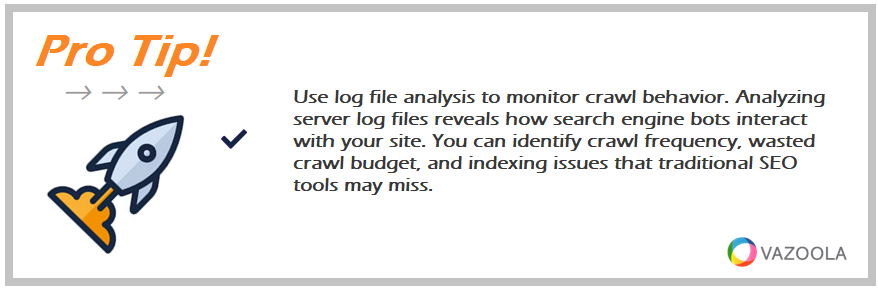
Use log file analysis to monitor crawl behavior. Analyzing server log files reveals how search engine bots interact with your site. You can identify crawl frequency, wasted crawl budget, and indexing issues that traditional SEO tools may miss.
Little to No Keyword Research
Neglecting thorough keyword research leads to targeting irrelevant or overly competitive terms. Understanding the phrases your audience uses allows you to create content that meets their needs and improves your site's visibility.
Likewise, avoid targeting the same keyword across multiple pages, as this can cause keyword cannibalization and dilute your SEO efforts. Resources like our free keyword research tool will help you along your way.
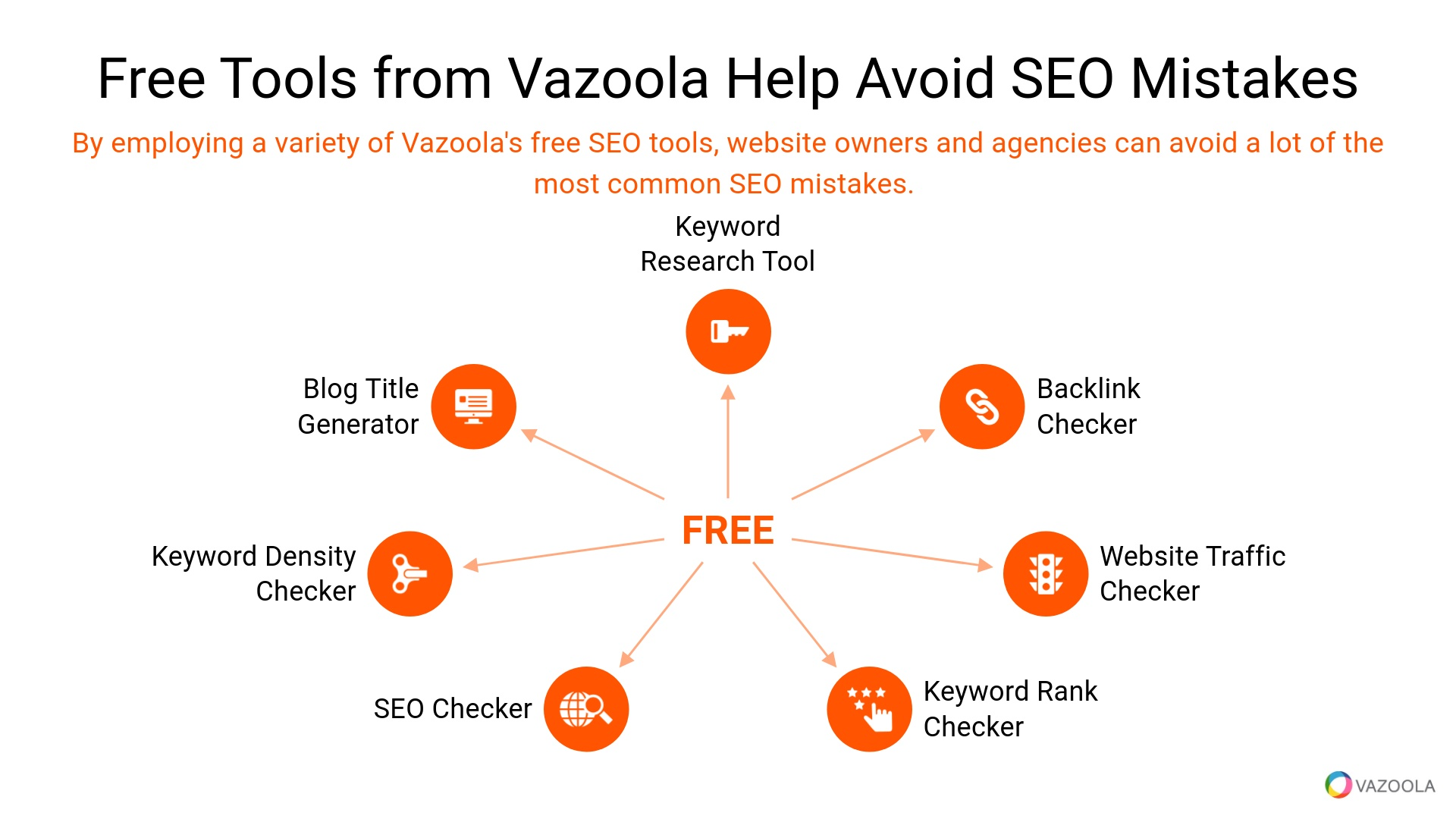
Lack of Backlinks
Backlinks from reputable sites tell search engines that your content is valuable and trustworthy. Develop a link-building strategy to earn high-quality backlinks through guest posting, content outreach, and linkable assets. A lack of backlinks can stall your rankings, even if your content is top-notch.
Instead of making common link-building mistakes, focus on building relationships and earning links organically by providing value others want to reference. Vazoola offers a free backlink checker to help with your strategy.
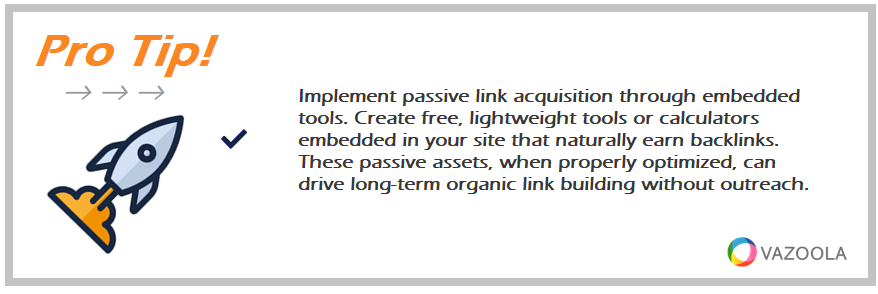
Implement passive link acquisition through embedded tools. Create free, lightweight tools or calculators embedded in your site that naturally earn backlinks. These passive assets, when properly optimized, can drive long-term organic link building without outreach.
Shady Backlink Practices
Buying links or participating in private blog networks might provide short-term gains but can lead to long-term penalties. Google’s algorithm continues to refine how it detects unnatural link patterns.
When it comes to black hat vs. white hat SEO strategies, stick to the white-hat variety like HARO outreach, digital PR, and publishing useful resources. If you’re uncertain about what makes a high-quality backlink, ask yourself, “Would I still want this link if search engines didn’t exist?”
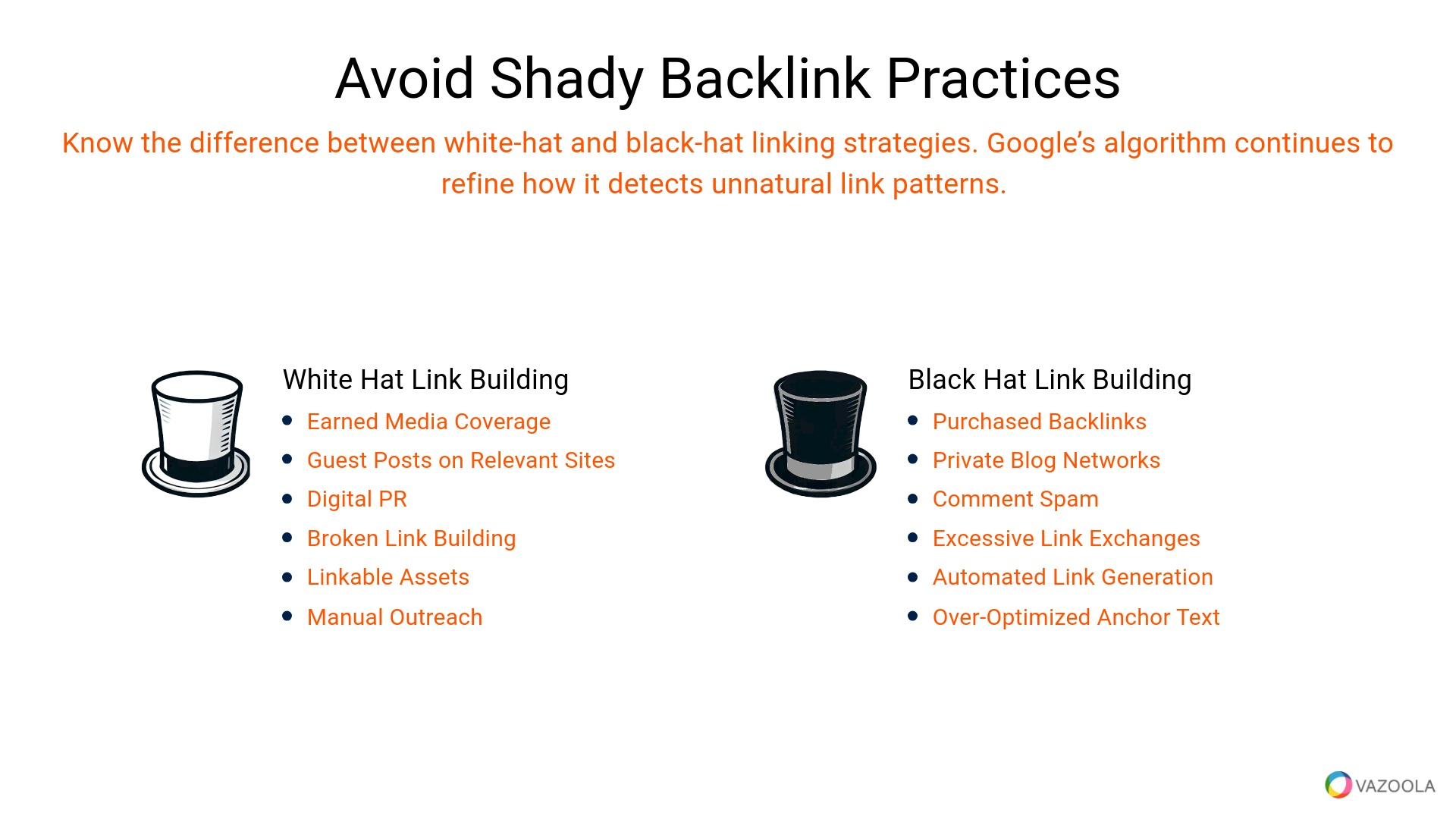
Low-Quality Content
There are also common content SEO mistakes. Content that lacks depth, originality, or relevance fails to engage users and can harm your site's credibility. Focus on creating high-quality, informative content that Google loves to address your audience's needs and establish your authority in the field.
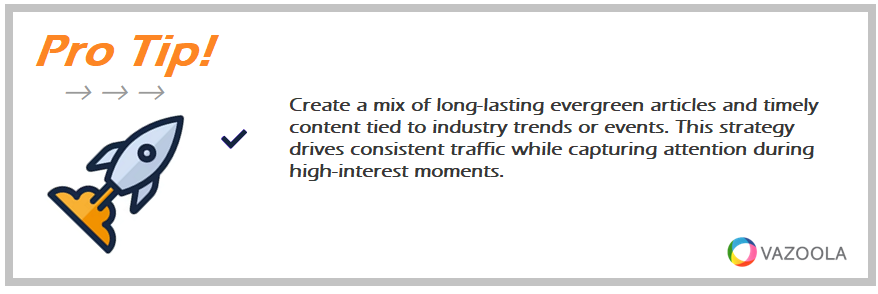
Create a mix of long-lasting evergreen articles and timely content tied to industry trends or events. This strategy drives consistent traffic while capturing attention during high-interest moments.
Images Not Optimized
Unoptimized images can slow down your website and negatively impact user experience. Compress images to reduce file sizes without sacrificing quality, and use descriptive alt text to improve accessibility and provide context to search engines.
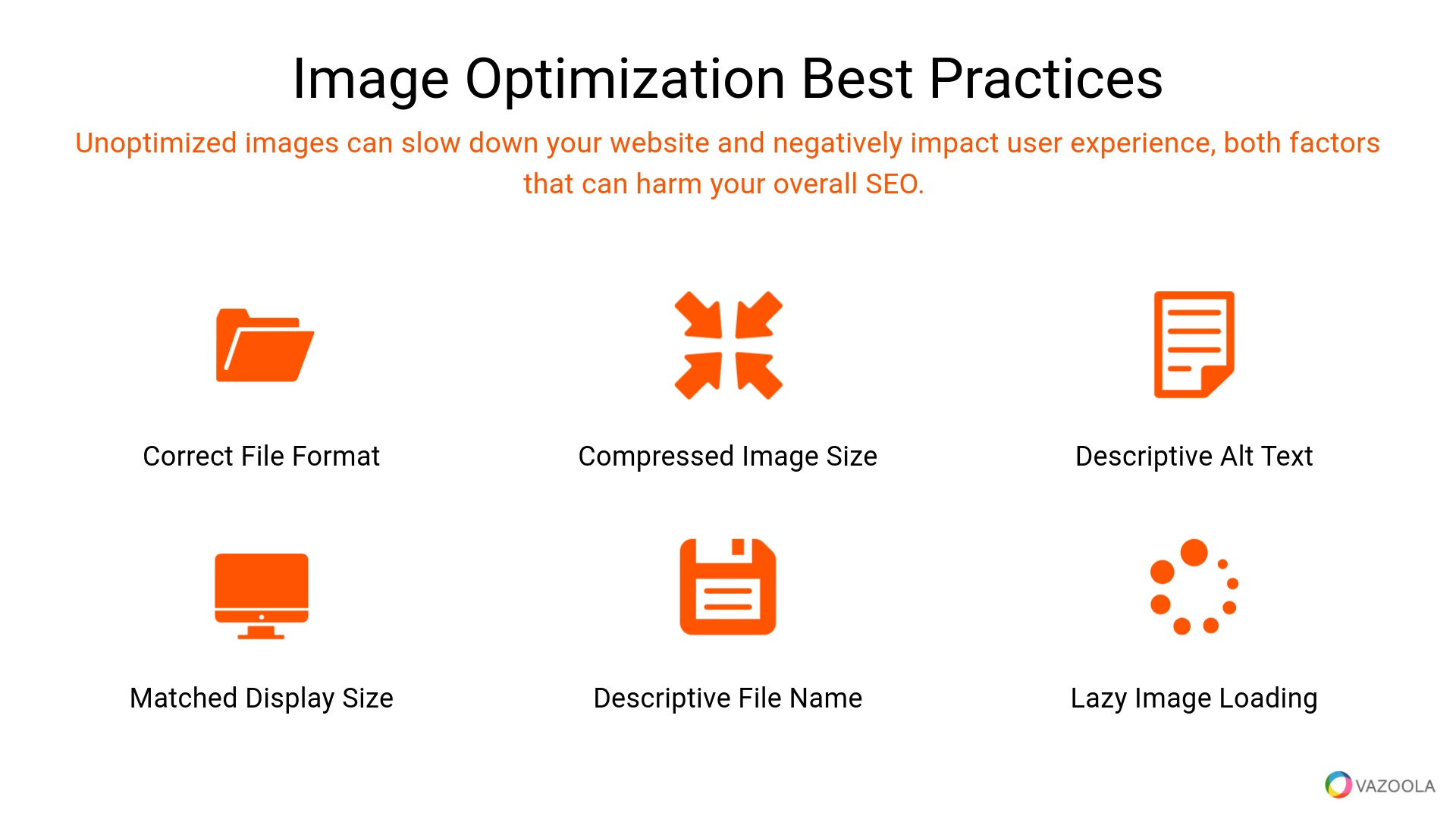
Duplicate Content
There are still other SEO mistakes in digital content production. Publishing identical or substantially similar content across multiple pages can confuse search engines and diminish your site's authority. Utilize tools like our duplicate content checker to identify and address these issues. Implementing canonical tags can also help manage duplicate content by specifying the preferred version of a page.
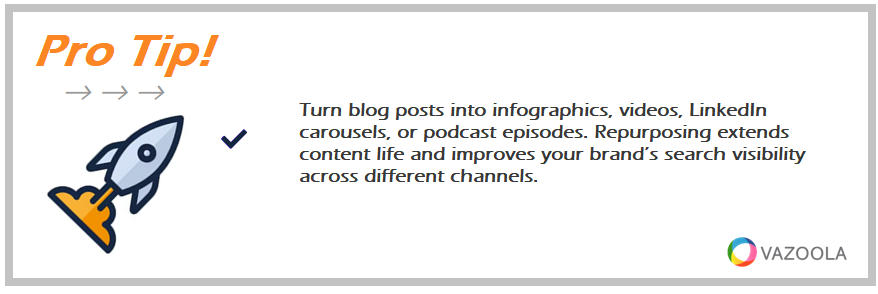
Turn blog posts into infographics, videos, LinkedIn carousels, or podcast episodes. Repurposing extends content life and improves your brand’s search visibility across different channels.
Meta Fields Aren’t Optimized
Meta titles and descriptions play a significant role in attracting users from search results. Neglecting to optimize blog post fields can result in lower click-through rates. Ensure each page has a unique and compelling title tag, H1 heading, and meta description that accurately reflects the content and includes relevant keywords.
Content Doesn't Match Search Intent
Creating content that doesn't align with the user's search intent can lead to high bounce rates and low engagement. Understand the intent behind target keywords and tailor your content to meet those specific needs, whether informational, navigational, or transactional.
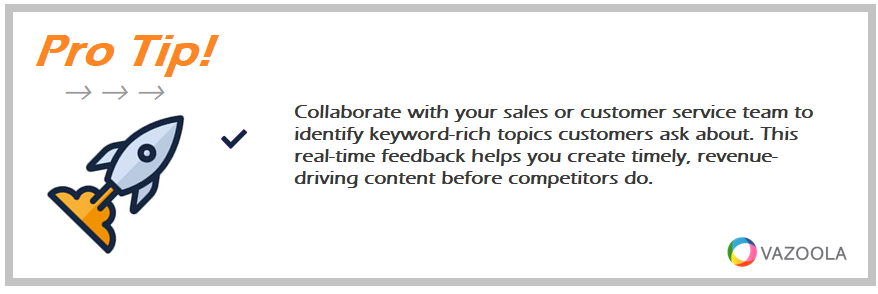
Collaborate with your sales or customer service team to identify keyword-rich topics customers ask about. This real-time feedback helps you create timely, revenue-driving content before competitors do.
Keyword Stuffing
Overloading your content with keywords in an attempt to manipulate search rankings – also known as keyword stuffing – can lead to penalties from search engines. Aim for natural and contextually appropriate keyword usage that enhances readability and user experience. Try our free keyword density checker to help find the perfect balance.
Anchor Text Issues
Using generic or overly optimized anchor text for internal and external links can appear manipulative to search engines. Employ descriptive and varied anchor text that provides context and improves the user's navigation experience.
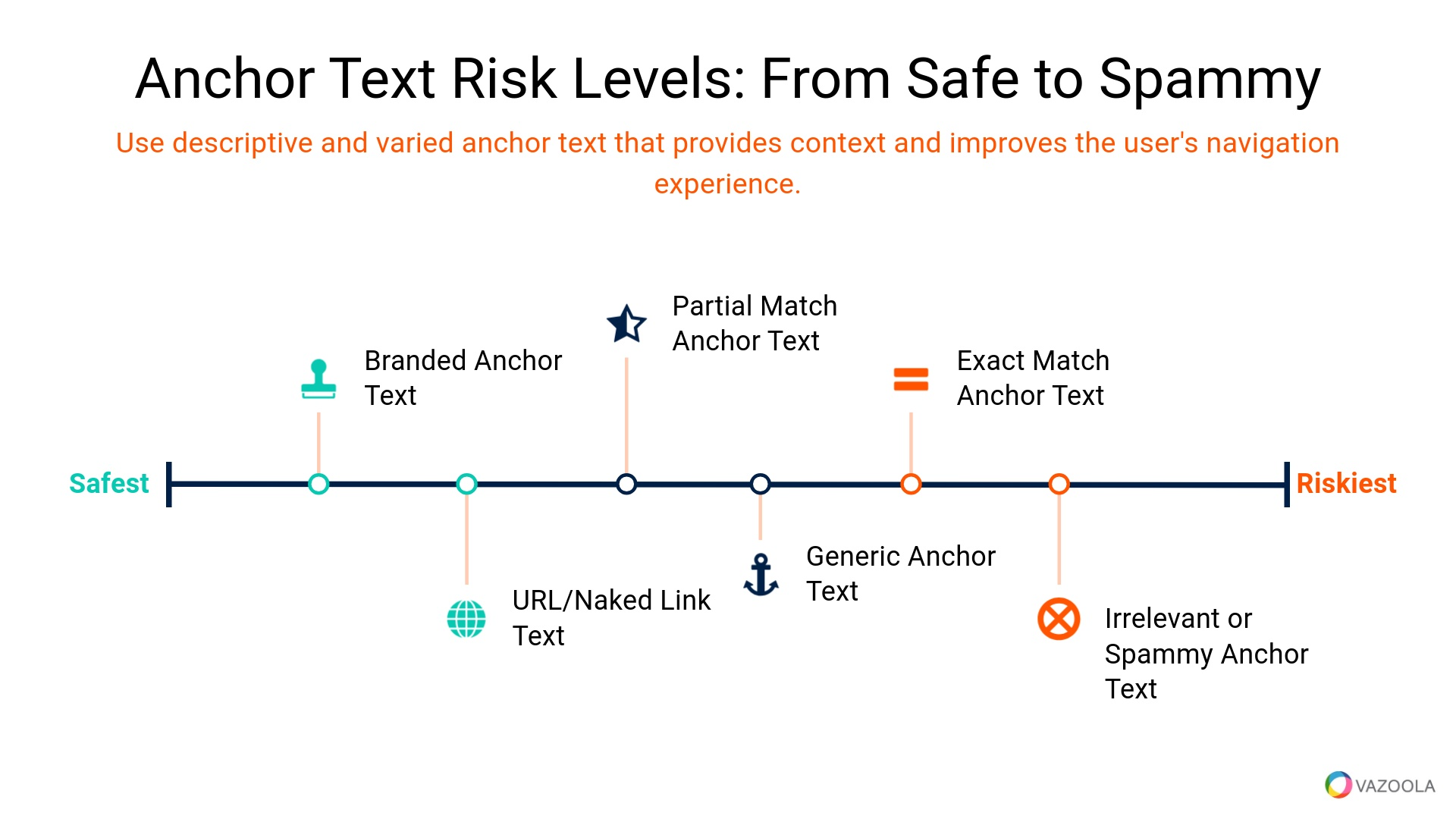
Lack of Internal Links
Internal linking helps search engines understand the structure of your site and distributes link equity among pages. A strategic internal linking approach enhances user experience and supports your SEO efforts.
Local SEO Issues
You also want to recognize local SEO mistakes to avoid. For businesses serving specific geographic areas, neglecting local SEO can result in missed opportunities. Ensure your business's name, address, and phone number are consistent across all platforms, and optimize your site for local search terms to improve visibility in local search results.
Improper Redirects
Redirects are essential during site migrations or URL updates, but misconfigurations can confuse crawlers and users. Avoid redirect chains and loops. Use 301 redirects for permanent moves, and ensure that redirecting URLs lead to relevant destinations. Broken redirects can cause 404 errors, affecting rankings and user experience.

Tools like Cloudflare Workers or Sloth enable changes like redirects, hreflang adjustments, or canonical tag updates at the CDN layer—no CMS access or dev time required.
Neglecting Mobile Optimization
More than 60% of Google searches come from mobile devices, according to a Hitwise report, so it’s important to avoid mobile SEO mistakes. A site that isn’t mobile-friendly won’t just frustrate users – it will rank lower in search results.
Check your site’s responsiveness across screen sizes. Use tools like Bing’s Mobile-Friendliness Test and prioritize fast loading speeds and simplified layouts.
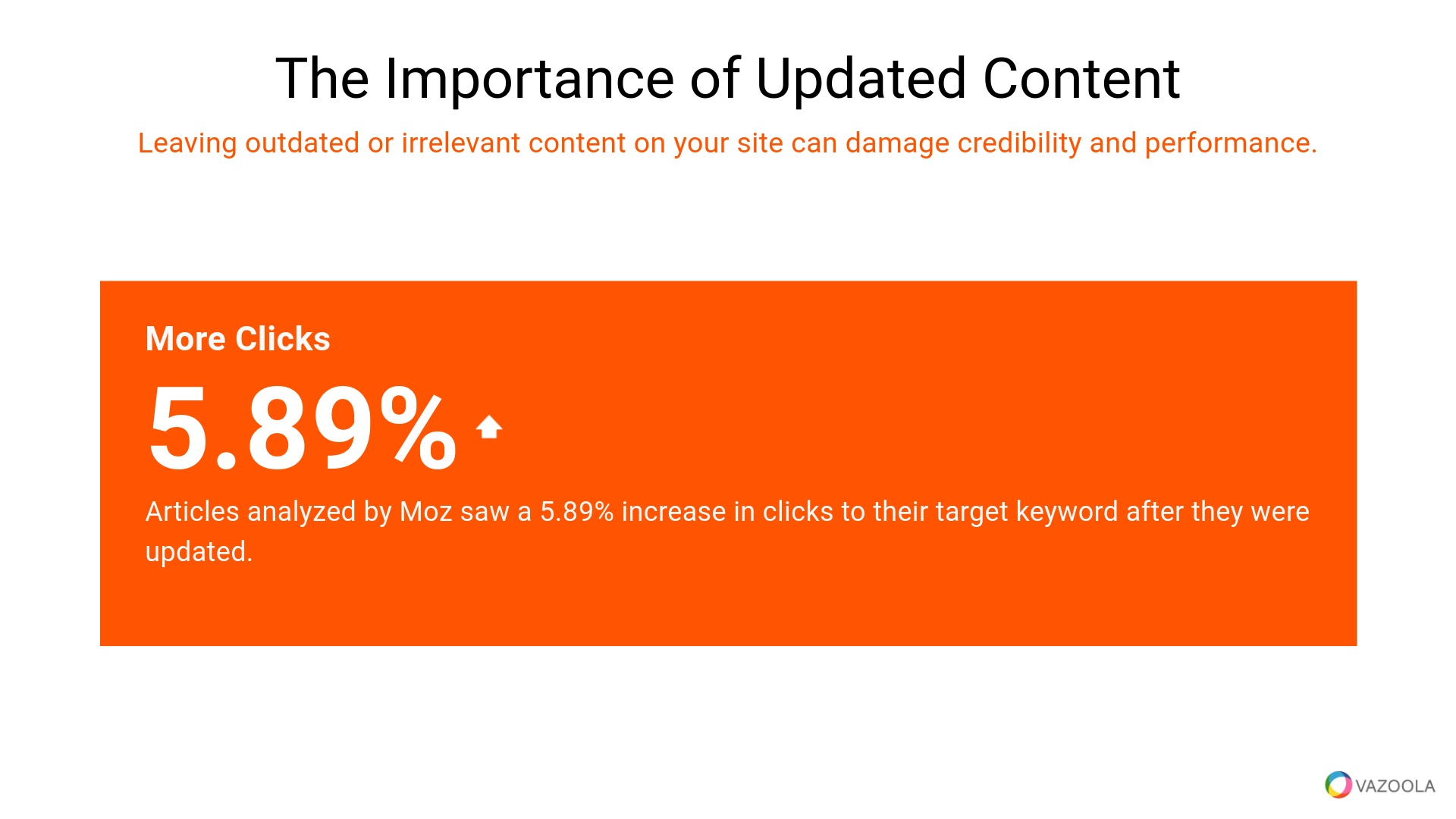
Not Updating Content Regularly
SEO is not a one-time task. Leaving outdated or irrelevant content on your site can damage credibility and performance. Refresh high-performing pages with new data, examples, and links. Audit your blog regularly to identify posts that could be improved or repurposed.
According to data that Moz pulled from Search Console, 41.46% of the articles analyzed had more clicks to their URL for their target term after being re-optimized. Further, all of the articles saw a 5.89% increase in clicks to their target keyword after they were updated.
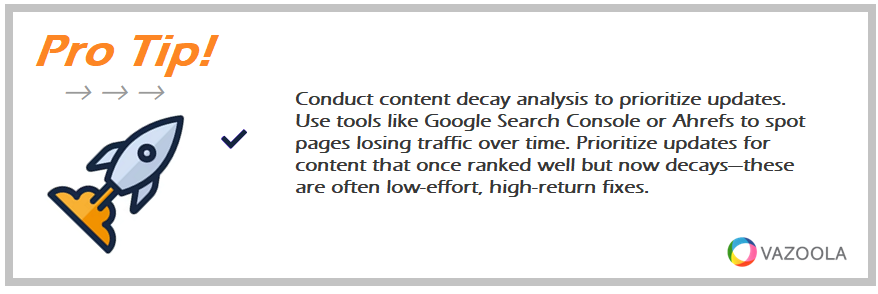
Conduct content decay analysis to prioritize updates. Use tools like Google Search Console or Ahrefs to spot pages losing traffic over time. Prioritize updates for content that once ranked well but now decays—these are often low-effort, high-return fixes.
Avoid These Common SEO Mistakes
Avoiding the biggest SEO mistakes takes more than just technical know-how. It requires a proactive mindset, regular audits, and a willingness to adapt strategies based on what works today—not what worked 5 years ago.
Brands that succeed in SEO stay current with best practices, create useful content for users, and maintain clean, optimized site structures. If your rankings have stalled or traffic is dropping, it’s time to identify where things went off track—and fix them.
Looking to improve your rankings, earn more backlinks, or clean up your site structure? Vazoola’s expert team can help you avoid the most common SEO mistakes and get back on the right path.

